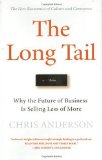Email and Event Marketing on Facebook Doesn’t Work
Outside of some close friends, one of the little known secrets about me is that I used to salsa dance. Not only did I enjoy dancing, I also competed in group and couples competitions. Like all enthusiasts, I subscribed to all the salsa lists to learn about upcoming events, lessons with outside instructors and more. Since I broke my ankle preparing for a competition (um, long story =), I’ve discontinued following the salsa activities and unsubscribed from all the lists. At least I thought I did.
Recently, I’ve started receiving notifications about these events, not through my email, but through Facebook. It’s getting so bad, that I’m on the verge of unfriending someone who has been sending me the most number of “event notifications.” In one case to be removed from a list, the response I received was: “however, please be advised this is a public event and it could be that one of your friends who originally received the invite from me extended the event invitation to you.”
Three Things to Consider Before Hitting Send on Facebook
While the full potential of Facebook is yet to be tapped by marketers and businesses, here are some key considerations before dropping your email lists into Facebook:
1. Relationships Matter: The intrinsic value of Facebook is that friends are great filters for knowing what I like and don’t like. Make sure you have an established relationship before sending an email or invite to someone, which leads to
2. Permission Marketing: Seth Godin’s book is key to engaging people via online marketing. Make sure you received permission from someone first. If you’re seeking to migrate your email list to Facebook, then be transparent about what you’re doing. Personally, the best thing is to ask those on your email lists if they would like to be contacted via Facebook – this way, they opt in for your Facebook communications.
3. CAN-SPAM Compliance: While I don’t know what the legalities are, I assume that Facebook communications would fall under the CAN Spam Act with regard to commercial content. As stated on the FTC website:
“Despite its name, the CAN-SPAM Act doesn’t apply just to bulk email. It covers all commercial messages, which the law defines as ‘any electronic mail message the primary purpose of which is the commercial advertisement or promotion of a commercial product or service,’ including email that promotes content on commercial websites. The law makes no exception for business-to-business email. That means all email – for example, a message to former customers announcing a new product line – must comply with the law.”
As such, make sure to allow for peopel to easily opt out of future communications.
Conclusions
To my knowledge, there is no way for me to opt out of someone’s “marketing” communications. Rather, I have to go to each group or event to leave. This is frustrating as many times, I have not directly signed up for the initial communications. Ideally, Facebook would create a backend platform tool for marketers to manage these types of communications. Similar to existing email solutions, the communications platform would enable businesses to:
1. Send communications to people who have opted in
2. Manage opt out requests for individual groups/events or everything managed by that business
3. Monitor response rates, unsubscribes and clickthroughs for the communications
4. Provide trending reports, such as friend referrals, time of day opens, etc.
5. And much much more
And for members, we should be able to filter out communications beyond just the spam button. For example, I do want to stay updated with my friend, I just don’t want all the updates regarding the next salsa class or bachata dance off. What recommendations would you provide for marketers and to Facebook?
3 Comments
Leave a comment
Additional comments powered byBackType
About
Favorite Service
Recent Comments
- on Going Virtual Isn’t Necessarily the Answer to Replacing Your Physical Events
- on Going Virtual Isn’t Necessarily the Answer to Replacing Your Physical Events
- on Going Virtual Isn’t Necessarily the Answer to Replacing Your Physical Events
- on Going Virtual Isn’t Necessarily the Answer to Replacing Your Physical Events
- on Going Virtual Isn’t Necessarily the Answer to Replacing Your Physical Events
Ads by Google
Favorite Books
Marketing Blogs
PR Blogs
- KD Paine's Measurement Blog
- Micro Persuasion
Virtual Events & Meetings Blogs
- Cisco Virtual Environments
- It's All Virtual
- The Webinar Blog
- Virtual Edge Institute

 Follow
Follow Cece Salomon-Lee is director of product marketing for Lanyon Solutions, Inc. and author of PR Meets Marketing, which explores the intersection of public relations, marketing, and social media.
Cece Salomon-Lee is director of product marketing for Lanyon Solutions, Inc. and author of PR Meets Marketing, which explores the intersection of public relations, marketing, and social media. 



@MJ – Great point about the headline. I wanted to highlight what I believe will become a bigger problem
@Bob – Exactly, it is about education. Unfortunately, people are also trying to do what is easiest and are open to alienating a few to reach the masses.
I agree. As Facebook, Twitter, etc. become markets where unfamiliar users venture, we will see more of this. The challenge is separating lack of education about the media from intent. New users too often don’t get the coaching or training to appropriately use the media and don’t realize the reach they are given.
I totally agree with what you say, but not your headline. Email & event marketing do work, but people need to follow the guidelines you have correctly identified.
Thanks
N